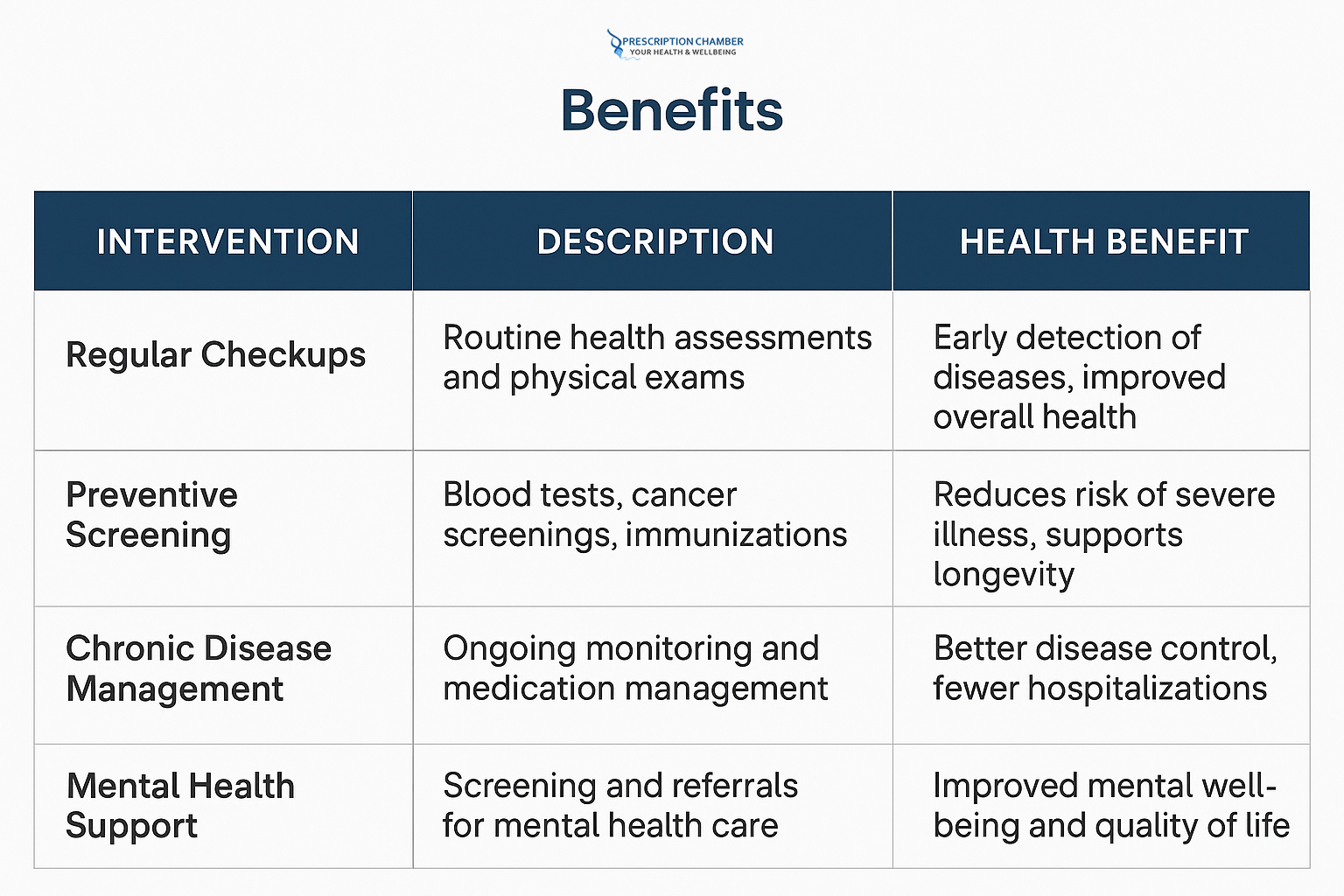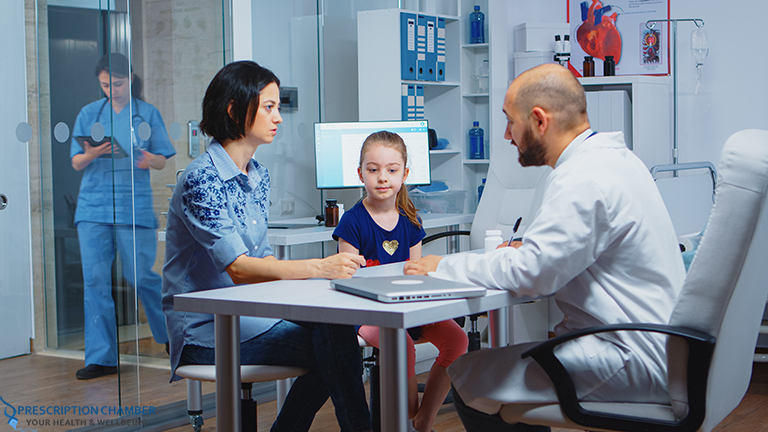Alright, so here’s the deal with primary care physician—they’re basically your go-to medical MVPs. Got a weird rash? Nagging cough? Just feeling off? You hit them up first. They handle all the routine stuff: checkups, those “fun” screenings nobody wants, wrangling your chronic issues, and yep, even mental health chats if you need ’em.
They’re like the quarterback, calling the shots and making sure if you need a specialist, you actually get to the right one (instead of falling into the endless maze of referrals). Plus, they’ll give you advice that actually fits your life, not just generic “eat more kale” nonsense—well, sometimes that too, but you get the idea.
Doesn’t matter if you see them in person or through a screen, honestly. They’re all about catching problems early and keeping tabs on you, so stuff doesn’t snowball. Babies, teens, grumpy adults, grandma—everyone gets the same level of attention. Basically, your PCP’s the one trying to keep you out of the ER, and, if we’re being real, out of trouble in general.
Acquaintance to Primary Care Physician
Definition and Role
A Primary Care Physician—that’s your PCP, in medical-speak—is basically your go-to doc. The first person you see when you’ve got the sniffles, weird aches, or just need someone to remind you to lay off the energy drinks. They handle the basics: check-ups, shots, figuring out if your cough is just a cough or something nastier, and all that jazz. Plus, if you need a specialist, they’re the ones sending you in the right direction and keeping tabs on the whole circus.
Importance of Primary Care
Having a PCP in your corner is kind of a game changer. Regular check-ins mean they’ll probably catch something before it turns into a disaster. They can spot if your blood pressure’s creeping up or if your cholesterol’s staging a mutiny. And yeah, science backs this up—folks with a solid PCP tend to dodge more hospital stays and save cash in the long run. It’s like having someone who actually cares if you’re alive next year. Not bad, right?
Services Provided by a Primary Care Physician
1. Routine Health Checkups
Let’s be real—nobody loves dragging themselves to the doctor just for a “routine checkup,” but hey, it beats finding out you’ve got high blood pressure when you pass out in line at Starbucks. PCPs (that’s primary care docs if we’re not being all official) keep tabs on your basics: blood pressure, cholesterol, that whole diabetes thing—plus they poke and prod you just to make sure nothing weird’s going on under the hood.
2. Preventive Care and Screenings
Prevention is where it’s at. Your PCP turns into your personal bodyguard against all sorts of nasty surprises. Shots? They’ve got you. Cancer screenings? No one’s excited, but trust me, you want to catch that stuff early. They’ll also hassle you (lovingly) about your diet, exercise, and whether you’re flirting with heart trouble or sugar overload.
3. Chronic Disease Management
If you’re dealing with something like diabetes, high blood pressure, or asthma, your PCP is basically your coach. They call the plays: set up your meds, help you figure out what’s making things worse, and try to keep you out of the ER. The goal? Fewer complications, less drama, and honestly, less time spent in waiting rooms.
4. Mental Health Support
Surprise! Your PCP isn’t just about your body—they’re checking in on your headspace, too. Feeling anxious? Down in the dumps? They’ll ask, sometimes awkwardly, but it matters. Maybe you’ll get a pep talk, maybe some meds, or maybe they’ll send you to someone who dives deeper into the mental health pool. Either way, they’ve got your back.
Key Interventions and Benefits

How to Choose the Right Primary Care Physician
Qualifications and Certifications
If you want a decent primary care doc, start by making sure they’re actually board-certified—family medicine, internal, peds, whatever fits your vibe. Don’t just take their word for it; check their credentials and see if they’re part of any legit medical groups.
Experience and Specialisations
Next up, experience counts. Like, if you’ve got diabetes or maybe your ticker’s not the best, you probably want someone who’s seen it all before—not a rookie who’s still googling stuff under the table. Geriatric care? Same deal. Find someone who actually knows what they’re doing with folks your age or with your health stuff.
Location and Accessibility
Location matters more than people think. If the office is halfway across town and you dread the drive, let’s be honest—you’re gonna skip appointments. Close and easy wins every time.
Patient Reviews and Recommendations
Oh, and don’t sleep on patient reviews. Seriously, check what people are saying online, and ask around. If everyone’s raving about how chill and understanding the doc is, odds are you won’t be treated like a number. Word of mouth beats marketing any day.

Primary Care Physician vs. Specialist
Differences in Care
PCPs, or primary care docs, they’re your go-to folks for the usual checkups, random sniffles, and nagging back pain. They’re like the quarterbacks of your healthcare squad, calling plays, keeping tabs on everything, and passing you off to the big guns when things get weird.
When to See a Specialist
Specialists? Oh, they’re laser-focused. You got a heart that’s misbehaving? That’s cardiologist territory. Thyroid’s going haywire? Endocrinologist. Basically, if your issue is complicated, rare, or just totally above your PCP’s pay grade, that’s when you get sent to the specialist bench. Otherwise, your PCP’s got your back for the day-to-day stuff.
Benefits of Having a Primary Care Physician
Improved Overall Health
Just having a regular doctor you see? Total game-changer. They keep tabs on your body and your brain, catch stuff before it gets outta hand, and sometimes they’ll even give you that nudge to eat a vegetable or two instead of just living off pizza. Not that I’m judging.
Early Detection of Diseases
Look, nobody wants to get blindsided by some random illness. Your PCP is basically your early warning system—running tests, poking around (sometimes literally), and spotting problems before they turn into big, expensive disasters. Catching stuff early? That’s how people win the health lottery.
Better Coordination of Care
You know how life gets messy, and suddenly you have five different doctors, none of them talking to each other? Yeah, PCPs are like the group chat moderator for your health. They keep all your info straight, make sure your specialists aren’t accidentally working against each other, and just generally make your life less of a headache.
Telemedicine and Modern Primary Care
Virtual Consultations
So picture this—you’re chilling on your couch, maybe still in your pajamas, and you can actually see your doctor without ever leaving the house. Telemedicine’s basically made that real. You just hop on a video call with your primary care doc, zero waiting rooms, and definitely no flipping through five-year-old magazines.
Benefits of Telehealth
You can get help without driving across town (or across a cornfield, if you’re rural—shoutout to the folks in the sticks). No more sitting around in germy waiting rooms, either.
Sometimes you get advice right away, especially if it’s something small, like “Is this rash weird?”
And if you’ve got a chronic thing going on, you can check in remotely to keep everything on track, all while staying comfy at home. Not too shabby, right?
Cost and Insurance Considerations
Insurance Coverage Options
Most insurance deals usually cover trips to your regular doctor, especially for check-ups and all that jazz. Just double-check they’re in your network—out-of-network stuff can seriously mess with your wallet.
Out-of-Pocket Costs
Yeah, there’s usually some kind of copay, deductible, or coinsurance nonsense lurking around. Best move? Talk money with your doc’s office and your insurance peeps ahead of time. No one likes nasty billing surprises.
Expert Opinions
Your primary care doc? Kinda like the MVP of keeping you healthy, not even kidding. Folks who stick with the same doctor usually dodge more hospital trips and deal with chronic stuff way better—and yeah, it saves money too. Dr. Jane Smith doesn’t sugarcoat it; she’s all about the basics: consistency wins.
And then there’s telemedicine, which, let’s be real, changed the game. Dr. Ahmed Khan’s pumped about it—says it lets doctors keep tabs on you in real time, jump on problems early, and actually get you more involved in your own health. No more waiting rooms, just video calls and faster help. Welcome to the future, I guess.
Frequently Asked Questions
How often should I visit my PCP?
Honestly, once a year’s the usual drill if you’re an adult and feeling pretty good. But, if you’ve got something chronic going on—like diabetes, high blood pressure, or your body just loves being complicated—you might find yourself there more often. Docs love seeing familiar faces, right?
What happens at a routine checkup?
So, they’ll poke and prod a bit—nothing scary, just the usual physical stuff. Blood pressure, weight, maybe a blood draw if they’re feeling nosy about your cholesterol or sugar. You’ll probably get some advice that you’ll pretend you’re totally going to follow. Sometimes it’s just a quick chat, sometimes they go full detective.
Can my PCP handle chronic illnesses?
Oh, for sure. That’s their bread and butter. They’ll juggle your meds, keep tabs on your progress, and call in the specialist cavalry if needed. It’s like having a health project manager who actually cares if you show up.
What about mental health—can PCPs help there?
Yep, and thank goodness. Most primary care docs check in about anxiety, depression, all that good stuff. They might hand out some meds, listen to you vent, or suggest a pro if things get tricky. They’re not therapists, but they’ll get you pointed in the right direction.
Are telemedicine visits effective?
Telemedicine is a total game-changer for stuff like routine check-ins, follow-ups, getting your meds sorted, or just dealing with those annoying little health hiccups. Saves you the hassle of waiting rooms and awkward magazine piles, right?
But hey, having a solid primary care doc? That’s still clutch if you wanna stay on top of your health for the long haul. You get someone who actually knows your history, can spot problems before they blow up, and keeps chronic things in check. Pick the right PCP and it’s like levelling up your whole healthcare experience—way better care, more prevention, less drama. And yeah, this goes for folks everywhere, not just in one corner of the world.

